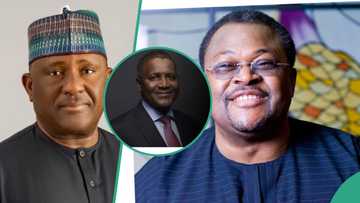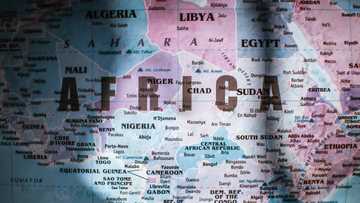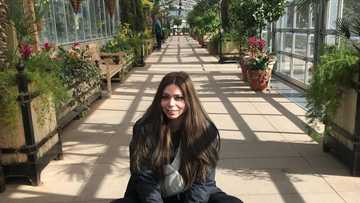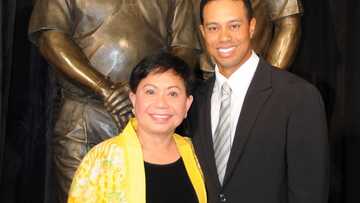List of West African сountries, their capitals and currencies
Do you wish to amaze everyone with your level of erudition? Check out this list of West African countries, their capitals, and currencies to see how much you are aware of the African continent. Keep on reading to know all the details about West African countries.

Source: UGC
TABLE OF CONTENTS
- List of West African countries, their capitals and currencies
- 1. The Republic of Guinea
- 2. The Republic of Cameroon
- 3. The Republic of the Niger
- 4. The Republic of Côte d'Ivoire
- 5. The Federal Republic of Nigeria
- 6. The Islamic Republic of Mauritania
- 7. The Republic of Mali
- 8. The Republic of Burkina Faso
- 9. The Republic of Ghana
- 10. The Republic of Senegal
- 11. The Republic of Benin
- 12. The Republic of Sierra Leone
- 13. The Republic of Liberia
- 14. The Republic of The Gambia
- 15. The Togo Republic
- 16. The Republic of Guinea-Bissau
- 17. The Republic of Cape Verde
- 18. Saint Helena, Ascension and Tristan da Cunha
- 19. The Democratic Republic of São Tomé and Príncipe
- How many countries are in West Africa?
- Are all West African countries part of ECOWAS?
- List of West African countries and their capital cities
- List of West African countries and their currencies
- Which country is the richest in West Africa?
- Which countries are in West Central Africa?
Africa is the second-largest continent globally (after Asia); West African countries occupy about 8 million sq km of the continent's 30.37 million sq km. Most countries in West Africa are part of sub-Saharan Africa and are endowed with many natural resources.
List of West African countries, their capitals and currencies
Africa is continuously developing both economically and socially. West African сountries are among the continent's rapidly evolving regions. They significantly contribute to the continent's growth. Here is a list of West African countries and their capitals.
1. The Republic of Guinea

Source: Getty Images
- Capital: Conakry
- Currency: Guinean franc (GNF)
- Official language: French
- Area: 245,857 square kilometers
Guinea is among the many French-speaking countries in West Africa. The Guinean franc (GNF) was introduced in 1959 to replace the CFA franc and reintroduced as Guinea's currency in 1985. Due to its diminished purchasing power, the smallest denomination in circulation is the 100 francs note.
Guinea's capital city, Conakry, sits on the slender Kaloum Peninsula and extends into the Atlantic Ocean. The city's Loos Islands have dense palm forests, beautiful beaches, and exotic water sports.
2. The Republic of Cameroon

Source: UGC
- Capital: Yaoundé
- Currency: Central African CFA franc
- Official language: English and French
- Area: 475,442 square kilometers
The Republic of Cameroon uses the Central African CFA franc, which is also used in six Central African countries. Yaoundé city spreads over seven hills in the southern part of the country.
The Notre-Dame-des-Victoires de Yaoundé with an eye-catchy triangular roof, the Mvog-Betsi Zoo with many primates rescued from the bushmeat trade, and Yaoundé's former presidential palace in the Lake Quarter are major tourist attractions in the country.
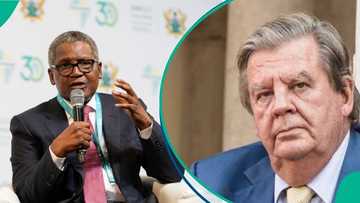
Read also
South African billionaire solidifies status as Africa's richest man, Dangote gets new position
3. The Republic of the Niger

Source: Getty Images
- Capital: Niamey
- Currency: West African CFA franc
- Official language: French
- Area: 1,267,000 square kilometers
The Republic of Niger is also on the list of West African countries. It is among the eight West African countries that use West African CFA franc.
The city of Niamey lies on the Niger River east bank. Africa's greatest dinosaur graveyard is found in this city.
4. The Republic of Côte d'Ivoire

Source: Getty Images
- Capital: Abidjan (economic), Yamoussoukro (political)
- Currency: West African CFA franc
- Official language: French
- Area: 322,463 square kilometers
Côte d'Ivoire is among the many French-speaking West African States, due to French-colonial rule. Ivory Coast changed its name to Cote d'Ivoire in 1986, and it uses the West African CFA franc currency.
The French government declared Abidjan the capital in 1933, and that never changed after independence. Côte d'Ivoire's second capital is associated with the country's first president.
5. The Federal Republic of Nigeria
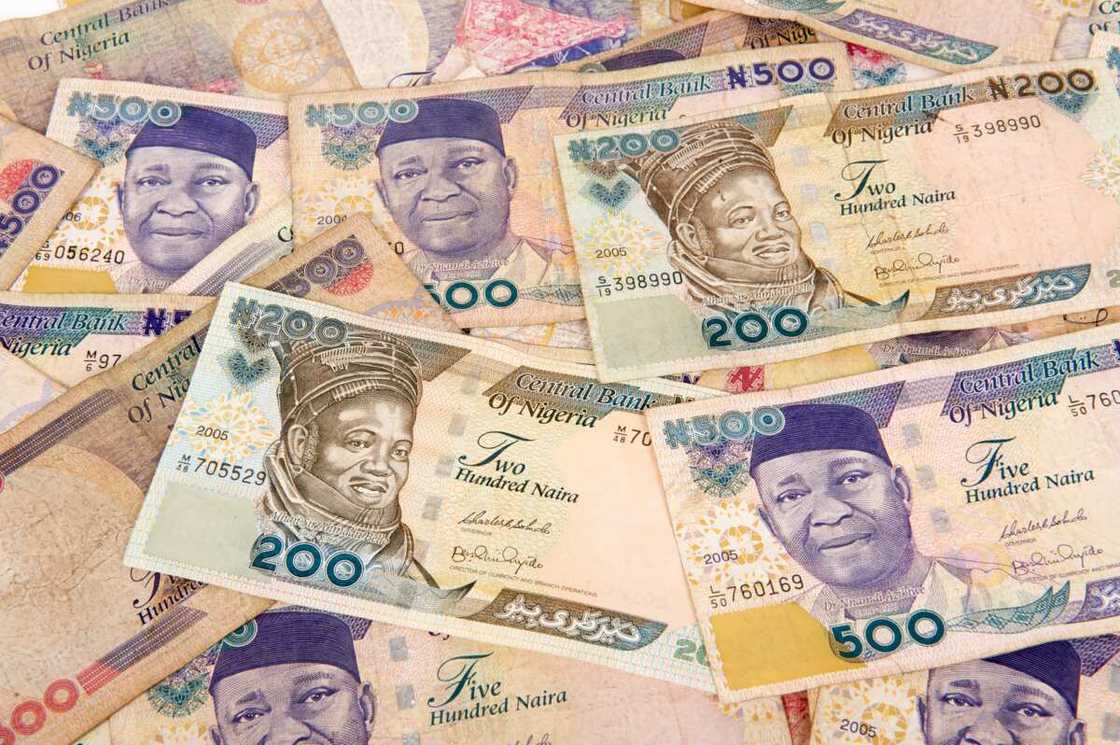
Source: Getty Images
- Capital: Abuja
- Currency: Naira
- Official language: English
- Area: 923,768 square kilometers
Nigeria's Lagos and Ibadan are among the top three largest cities in West Africa, but Abuja is the capital because it is in the country's middle.
The Naira was introduced in January 1973. One Nigerian Naira is divided into 100 kobos. Kobo coins of a higher value are made of cupro-nickel, while those of lower value are bronze.
6. The Islamic Republic of Mauritania

Source: Getty Images
- Capital: Nouakcholl
- Currency: Ouguiya
- Official language: Arabic
- Area: 1,030,000 square kilometers
The old ouguiya replaced the CFA franc at a rate of 1 old ouguiya = 5 francs. The Central Bank of Mauritania introduced notes in denominations of 100, 200 and 1,000 ouguiya in 1973.
A redenomination of the currency was introduced in December 2017 at a rate of 1:10. The new ouguiya was introduced in 2018, and it replaced the old ouguiya at a 1 new = 10 old rate. Each ouguiya constitutes five khoums.
Nouakcholl city was a large fortified fishing village in pre-colonial and French colonial times. It now hosts Nouakchott–Oumtounsy International Airport, a deep-water port, and the University of Nouakchott.
7. The Republic of Mali

Source: Getty Images
- Capital: Bamako
- Currency: West African CFA franc
- Official language: French
- Area: 1,240,192 square kilometers
The West African CFA franc is also used in Mali. The country's capital city is located on the Niger River, near the rapids that divide the upper and middle Niger valleys.
Bamako is among the top ten largest cities in West Africa, and it had settlements in the Old Age Period. Since the city sprouted from the northern side of the river, the north is more developed than the south. Hence, bridges were developed to connect both sections.
8. The Republic of Burkina Faso
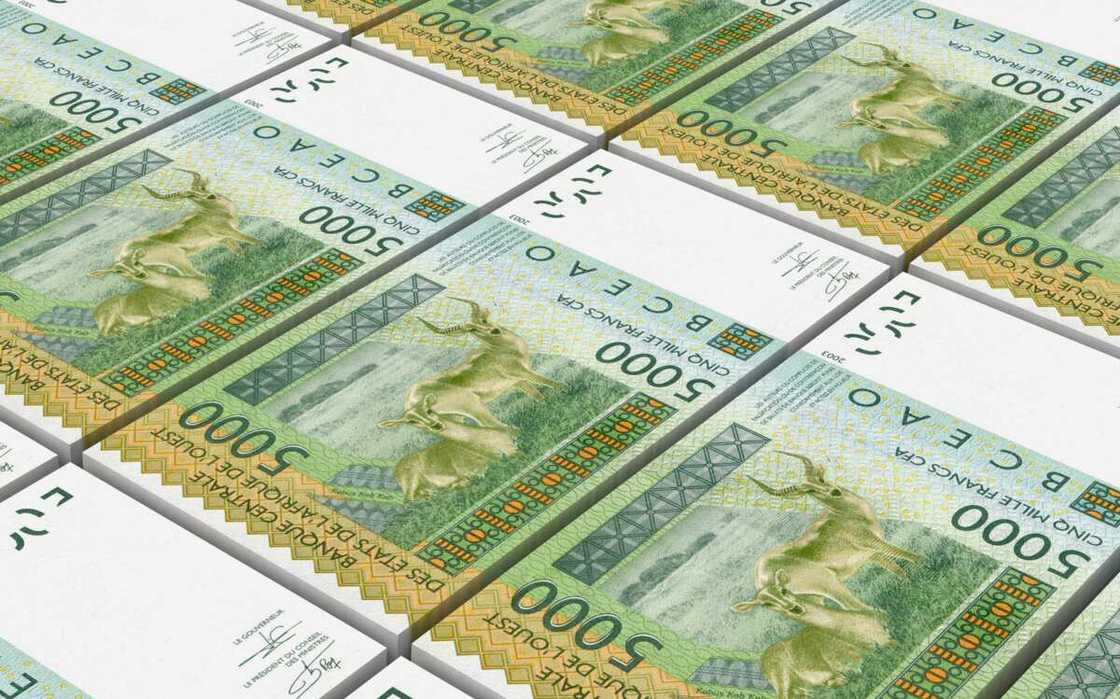
Source: Getty Images
- Capital: Ouagadougou
- Currency: West African CFA franc (XOF)
- Official language: French
- Area: 274,200 square kilometers
Burkina Faso is among the land-locked countries in Africa. It is surrounded by Benin, Ghana, Ivory Coast, Niger, Mali and Togo. Ouagadougou's short name is Ouaga, but its inhabitants call it Ouagalais.
The city lies on the central plateau, and it developed around the Mogho Naaba palace. During the pre-colonial period, Ouagadougou was the capital of the Mossi Kingdoms, then the Upper Volta and Burkina Faso kingdoms.
9. The Republic of Ghana

Source: Getty Images
- Capital: Accra
- Currency: Ghana cedi (GHS)
- Official language: English
- Area: 238,535 square kilometers
In July 1965, the country's first president, Dr Kwame Nkrumah, introduced Cedi notes and Pesewa coins to replace the Ghanaian shillings, pounds, and pence.
After the February 1966 military coup, the new leaders wanted to removed Nkrumah's face from the banknotes and introduced the "new cedi." The third one was introduced in 2007 due to rampant inflation.
Accra city is on the Atlantic coast of West Africa. It has the Kwame Nkrumah Memorial Park and mausoleum, and the Labadi and Kokrobite beaches. The Makola Market is the city’s largest and most colourful bazaar.
10. The Republic of Senegal

Source: Getty Images
- Capital: Dakar
- Currency: West African CFA franc
- Official language: French
- Area: 196,712 square kilometers
Senegal's Dakar city is an Atlantic port on the Cap-Vert peninsula. The city originated in the 15th century when the Portuguese used Gorée island (one of Dakar's islands) as an Atlantic slave trade base.
France took over the island in 1677 and made it a major regional port and city for its colonial empire by the 19th century. In 1902, Dakar replaced Saint-Louis as French West Africa's capital, then Mali Federation's capital from 1959 to 1960
The city became Senegal's capital in 1960, after independence. The country's currency is the West African CFA franc.
11. The Republic of Benin

Source: UGC
- Capital: Porto-Novo
- Currency: West African CFA franc (XOF)
- Official language: French
- Area: 114,763 square kilometers
Porto-Novo has many breathtaking colonial buildings. The Brazilian-style Great Mosque was an ancient church before its conversion. It has musical instruments and costumes that celebrate the Afro-Brazilian culture and preserve Benin's history.
Petroleum mined on the city's coast is a major export product for Benin. It was discovered in 1968 and but its mining begun in the 1990s. The Republic of Benin uses the West African CFA franc.
12. The Republic of Sierra Leone
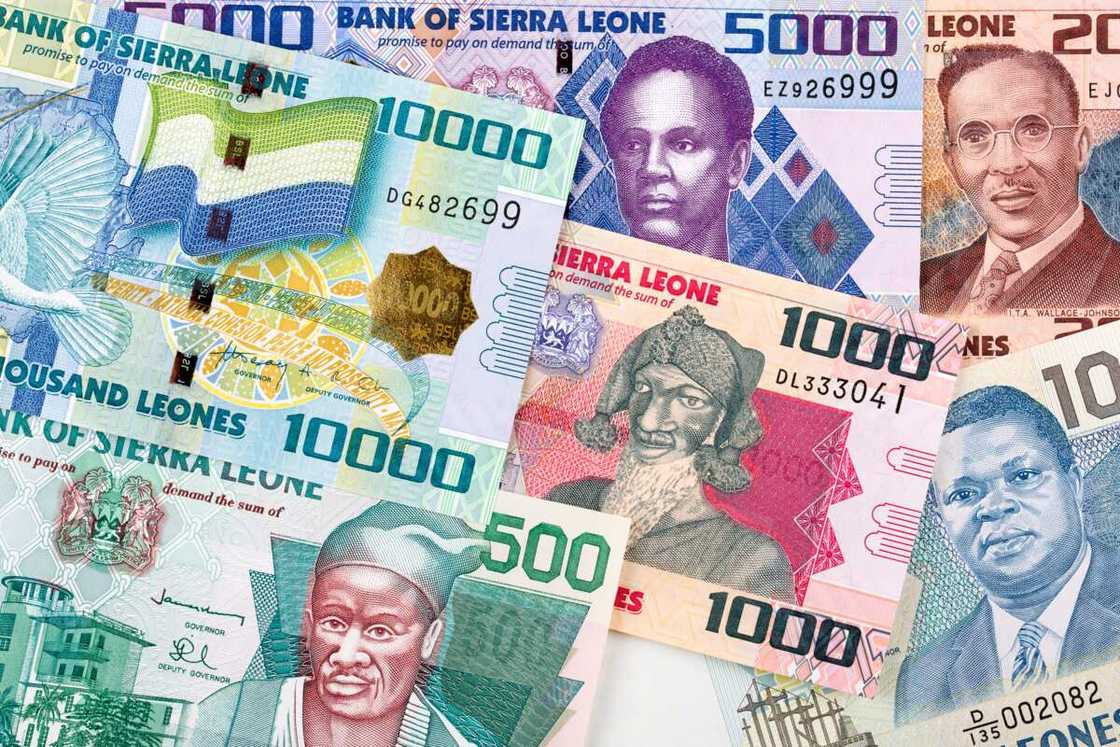
Source: Getty Images
- Capital: Freetown
- Currency: Leone (SLL)
- Official language: English
- Area: 71,740 square kilometers
Sierra Leone's Leone currency is subdivided into 100 cents. Small banknotes like Le10,000, Le 5,000, Le 2,000 and Le 1,000 are still in use. However, the cents are no longer usable due to the currency's low value.
Sierra Leone's Freetown is a major port city on the Atlantic Ocean. The harbour and the Sierra Leone river are the backbone of the city's economy. Its original inhabitants were the Creole people, but more ethnic communities and races have now settled here. The primary language in Freetown is the Krio language of the Creole people.
13. The Republic of Liberia

Source: Getty Images
- Capital: Monrovia
- Currency: Liberian dollar (LRD)
- Official language: English
- Area: 111,369 square kilometers
The Liberian Dollar (L$) was introduced in 1943. The Central Bank of Liberia was established in October 1999 to print and maintain its value.
The LRD circulates alongside the USD due to the strong historical ties between Liberia and the US. The country's capital was established in 1822 on Cape Mesurado along the Atlantic coast. Monrovia is Liberia's most populous city.
14. The Republic of The Gambia

Source: Getty Images
- Capital: Banjul
- Currency: Dalasi (GMD)
- Official language: English
- Area: 11.295 square kilometres
The Gambia's Dalasi currency was adopted in 1971. It replaced the Gambian pound at a rate of 1 pound = 5 Dalasis and is subdivided into 100 bututs.
The original Dalasi notes that the Bradbury Wilkinson and Company printed were in 1, 5, 10, 25, 50 and 100 denominations. The country later added D20 and D200 to its currency's denominations.
Banjul city sits on an island where the Gambia River meets the Atlantic Ocean. The city's main entrance has an immense, columned Arch 22 gateway, and tourists buy colourful textiles and local produce at the Albert Market.
15. The Togo Republic

Source: UGC
- Capital: Lomé
- Currency: West African CFA franc
- Official language: French
- Area: 56,785 square kilometers
Togo never abandoned the West African CFA franc after independence. Its capital city is a beautiful place to tour and even live in. Lomé city lies on the Gulf of Guinea (Atlantic coast) and was the colonial capital of German Togoland in 1897.
Lomé's Akodésséwa Fetish Market's vendors sell voodoo items like animal skins and skulls. The nearby Congressional Palace has a National Museum full of West African masks, jewellery, pottery, and musical instruments.
16. The Republic of Guinea-Bissau

Source: Getty Images
- Capital: Bissau
- Currency: West African CFA franc
- Official language: Portuguese
- Area: 36,125 square kilometers
French is the national language of many countries in West Africa except Guinea-Bissau and a few others. Most countries in West Africa were colonized by France, followed by Portugal, then Britain.
Guinea-Bissau was a Portuguese colony, and its capital is located near the point where the Geba River meets the Atlantic Ocean.
17. The Republic of Cape Verde

Source: Getty Images
- Capital: Praia
- Currency: Cape Verdean escudo (CVE)
- Official language: Portuguese
- Area: 4,033 square kilometres
The Escudo is written with a cifrão as the decimal separator. For instance, 50$00 for 50 escudos, or 3.000$00 for 3000. The Escudo replaced the Rei, with 1 Escudo = 1,000 Reis, in 1914. A new rate of 1 Portuguese Escudo = 0.55 Cape Verde Escudo was introduced in 1998.
After that, the Euro replaced the Portuguese Escudo, and the Cape Verdean escudo (CVE) later replaced the Euro at 110$265 Escudos = 1 Euro. The third CVE banknotes were introduced in 1992. The 200-escudo note was redesigned and distributed during the 30th independence anniversary.
Praia city is on the southern coast of Santiago island but within the Sotavento Islands group. António da Noli discovered the Island of Santiago in 1460, and it became a natural harbour for Portuguese colonies in Africa and South America in 1615.
18. Saint Helena, Ascension and Tristan da Cunha

Source: Getty Images
- Capital: Jamestown
- Currency: Saint Helena Pound
- Official language: English
- Area: 121.7 square kilometres
The Atlantic islands of Saint Helena and Ascension use Saint Helena Pound. Many may be shocked to see it on the list of West African countries because few know about it.
Since the British pound sterling is also acceptable, both currencies circulate in Saint Helena's economy. The Saint Helena pound is subdivided into 20 shillings and a shilling into 12 pence.
Jamestown is on the southern side of the Atlantic Ocean. The city came into existence when colonists from the English East India Company settled there in 1659.
The Dutch East India Company lived here in 1673 before the Englishmen recaptured it. Most buildings that the East India Company built in the 18th still exist.
19. The Democratic Republic of São Tomé and Príncipe

Source: Getty Images
- Capital: São Tomé
- Currency: Dobra
- Official language: Portuguese
- Area: 1,001 square kilometers
São Tomé and Príncipe is also on the list of West African countries. It established diplomatic relations for democracy and good governance with the US in 1976, following its independence from Portugal.
The island nation has the smallest Ibis globally, rare bat species, the São Tomé shrew, and other beautiful animals. Its capital is called São Tomé, and they use the Dobra currency.
Dobra is represented by the symbol Db. Banknotes of 5,000, 10,000, 20,000 and 50,000 denominations were issued in 1966, then coins (denominations of 50 cêntimos, 1, 2, 5, 10, and 20) in 1997.
Additionally, notes of 50, 100, and 1,000 denominations were released in 1997 and 10,000 dobra banknotes were issued in 2018. The Euro replaced Dobra in 2010 at a rate of 1 Euro = 24,500 STD.
How many countries are in West Africa?
If someone was to ask you, “how many countries are in the West African region?” There are two answers. If they are looking at it from the geographical point of view, the region has 19 countries.
However, from the economic point of view, there are 15 countries. Four West African countries are not on the list of ECOWAS countries (Economic Community of West African States).
Are all West African countries part of ECOWAS?
The Economic Community of West African States (ECOWAS) comprises 15 countries. São Tomé and Príncipe, Saint Helena, Cameroon, and Mauritania are not part of it.
List of West African countries and their capital cities
Here is a summary of countries in West Africa and their capital cities:
- Benin - Porto-Novo
- Burkina Faso - Ouagadougou
- Cabo Verde (Cape Verde) - Praia
- Cameroon - Yaoundé
- Côte d'Ivoire (Ivory Coast) - Abidjan (economic), Yamoussoukro (political)
- The Gambia - Banjul
- Ghana - Accra
- Guinea - Conakry
- Guinea-Bissau - Bissau
- Liberia - Monrovia
- Mali - Bamako
- Mauritania - Nouakcholl
- Niger - Abuja
- Nigeria - Niamey
- São Tomé and Príncipe - São Tomé
- Saint Helena, Ascension and Tristan da Cunha - Jamestown
- Senegal - Dakar
- Sierra Leone - Leone
- Togo - Lomé
List of West African countries and their currencies
Below is a summarized list of west African countries and their capital cities.
- Benin - West African CFA franc (XOF)
- Burkina Faso - West African CFA franc (XOF)
- Cabo Verde (Cape Verde) - Cape Verdean escudo (CVE)
- Cameroon - Central African CFA franc
- Côte d'Ivoire (Ivory Coast) - West African CFA franc (XOF)
- The Gambia - Dalasi (GMD)
- Ghana - Ghana cedi (GHS)
- Guinea - Guinean franc (GNF)
- Guinea-Bissau - West African CFA franc (XOF)
- Liberia - Liberian dollar (LRD)
- Mali - West African CFA franc (XOF)
- Mauritania - Ouguiya
- Niger - Naira
- Nigeria - West African CFA franc (XOF)
- São Tomé and Príncipe - Dobra
- Saint Helena, Ascension and Tristan da Cunha - Saint Helena pound
- Senegal - CFA franc
- Sierra Leone - Leone (SLL)
- Togo - Lomé West African CFA franc (XOF)
Which country is the richest in West Africa?
The Western region of Africa has several richest countries on the continent. Hence, there is stiff economic competition among countries in this region. The wealthiest West African countries are:
According to their annual GDP
GDP is the total value of all services and goods produced in a county over a set period, usually a year. It reflects how productive a nation is. The West African States with the highest GDPs are:
- Nigeria: $480.48 billion
- Ghana: $75.49 billion
According to the land's fertility and mineral resources
African countries are abundantly blessed with natural resources. These three countries have the most minerals in West Africa:
- Nigeria: oil, gas, coal, uranium, marble, tantalite, salt, gold, gemstones
- Ghana: gold, crude oil, diamonds, manganese, silver, bauxite
- Niger: uranium, gold, cement, coal
Which countries are in West Central Africa?
UNFPA’s WCARO (West and Central Africa Regional Office) covers 23 countries. The West Central African countries are divided into four sections:
14 Francophone
Francophone means a group of French-speaking nations. West African countries that use French as the official language are:
- Benin
- Burkina Faso
- Cameroon
- The Central African Republic
- Chad
- Congo-Brazzaville
- Cote d’Ivoire
- Gabon
- Guinea
- Mali
- Mauritania
- Niger
- Senegal
- Togo
5 Anglophone
For these 5, the countries' population speak two or three languages, but English is the official language of communication:
- The Gambia
- Ghana
- Liberia
- Nigeria
- Sierra Leone
3 Lusophone
The Lusophone states of Africa are Portuguese-speakers. It means that these countries' official language is Portuguese.
- Cabo Verde
- Guinea-Bissau
- Sao Tome & Principle
1 Hispanophone
Hispanosphere or Hispanophone is anything relating to the Spanish language. The only West Central Spanish-speaking nation is Equatorial Guinea.
Hopefully, this list of West African countries has broadened your knowledge about the continent. Despite the different official languages and currencies used in these countries, the West African people have a cohesiveness because of cultural similarities.
READ ALSO: 10 most beautiful cities in Africa 2020
Legit.ng also posted a list of the top 10 most beautiful cities in Africa. You should make a trip to this continent because everything about it is fantastic.
African cities are developing at a fast rate. They do not look anything close to the New York City or Paris, but are lovely places to stay or tour whenever you are on vacation.
Source: Legit.ng



